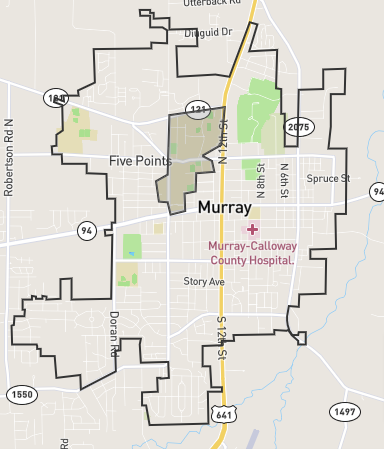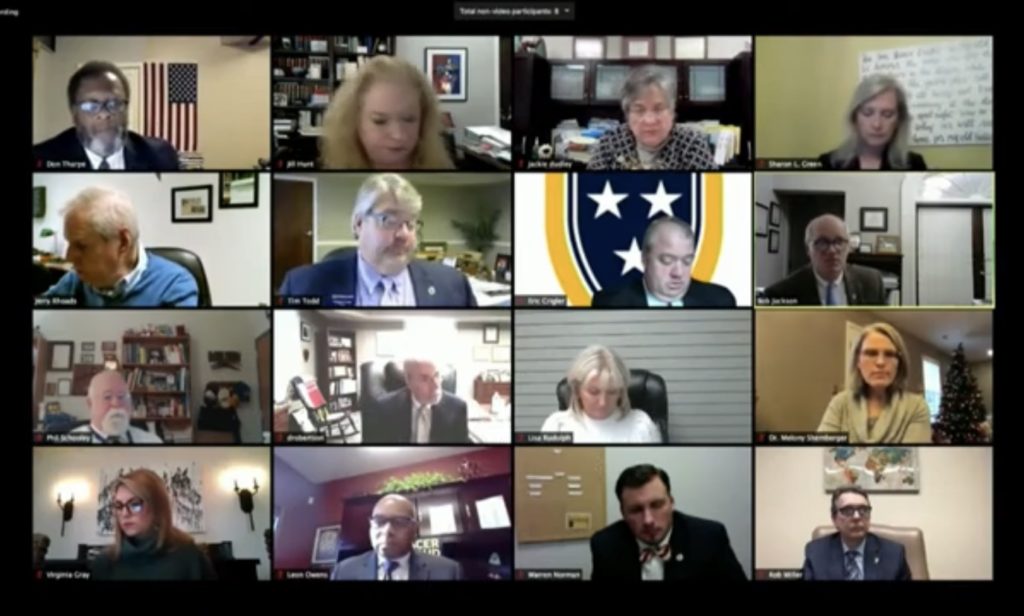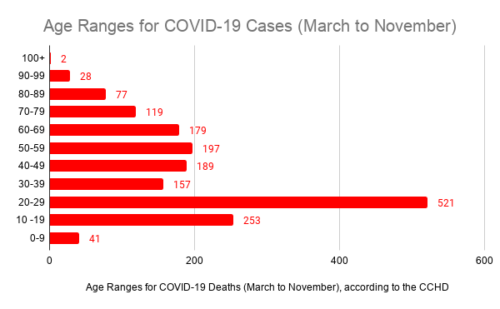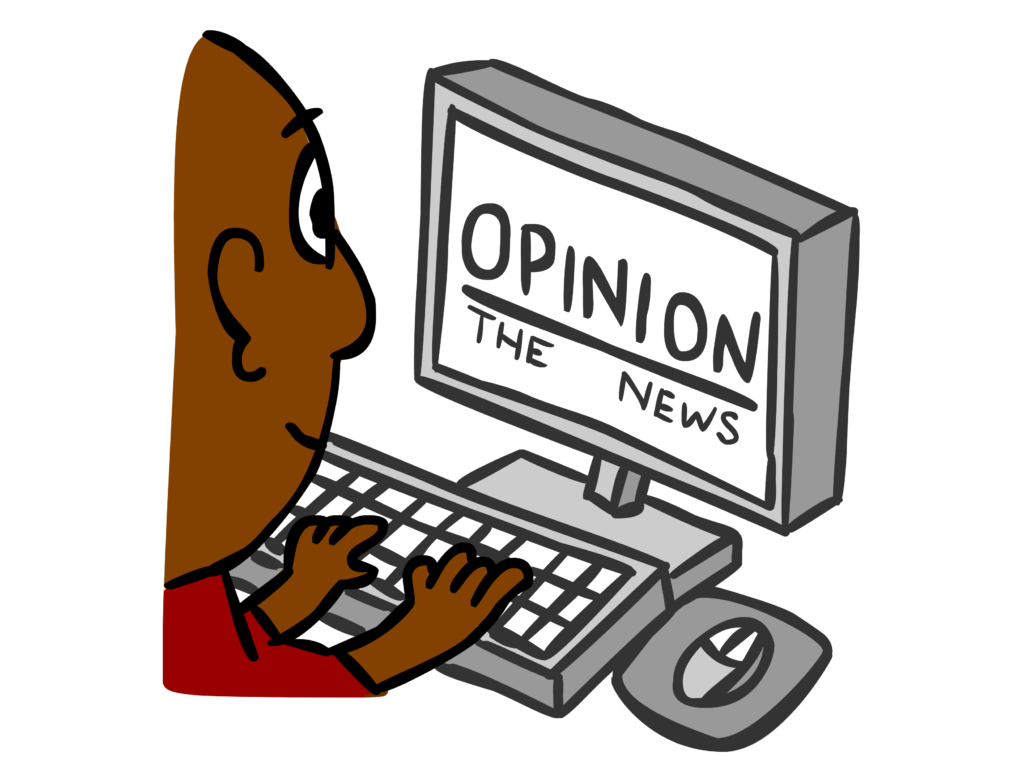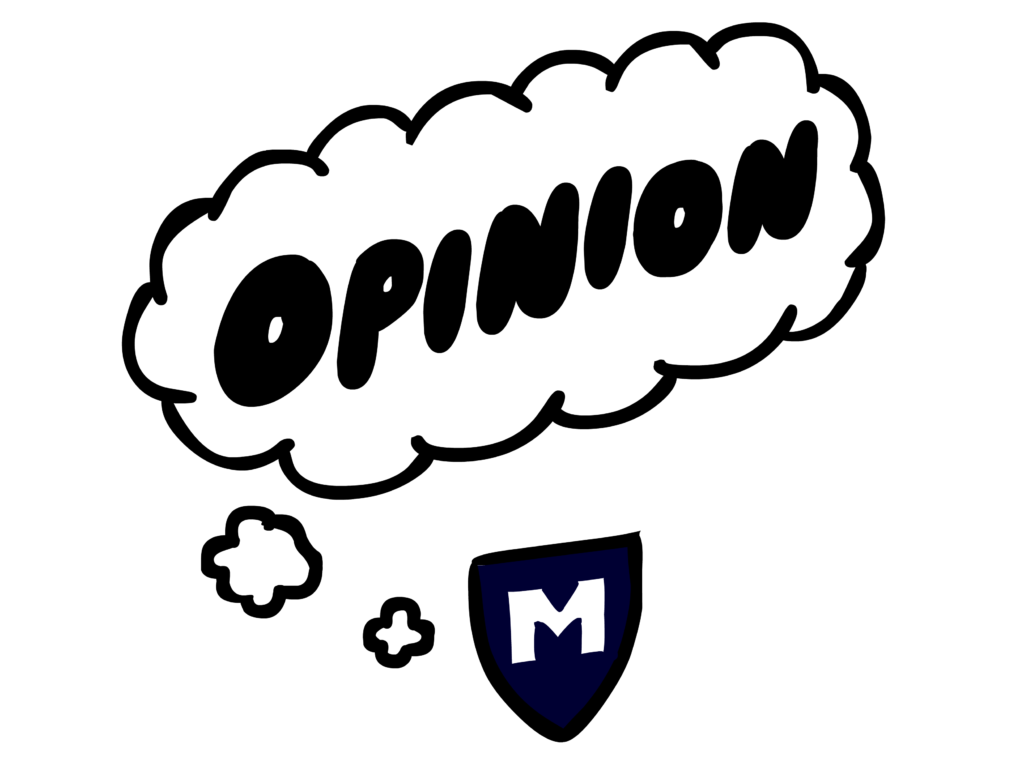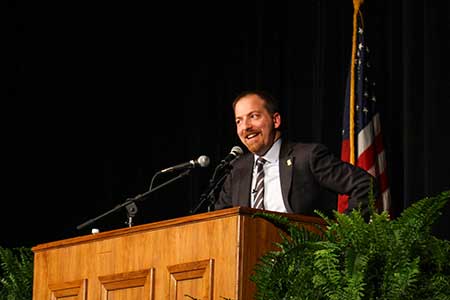
Chuck Todd, mediator of “Meet the Press” and political director of NBC News, gave students and community members political insight Tuesday night in Lovett Auditorium.
He spoke about everything from the corruption within political parties to the role of the millennial generation in politics.
He also pointed out the growing conflict between journalists and politicians and how it should be solved.
Todd said both Republicans and Democrats have issues that need to be addressed.
He said “no party” is growing every year because some people no longer define themselves as being Republican or Democrat, and more and more people have stopped voting altogether.
“Fewer people voted in 2014 – a 70-year lull in voting,” Todd said. “Political parties are spending more money than ever, and fewer people are showing up to vote. That’s the issue staring us in the face.”
Todd said a big player in this problem is “big data.” Politicians and campaign workers are too obsessed with looking for data such as demographics and forget that communication and persuasion are the most important parts of a political campaign.
“Big data is dividing us more than ever,” Todd said. “The system was designed as a mechanism for compromise, but it has changed into a system for gridlock.”
Another issue is that everyone is always searching to confirm their own biases.
“Many of us are interested confirming our own biases and one way to learn and grow is to spend time with people who are different than you,” said Catherine Sivills, assistant vice president of branding, marketing and communications.
Todd said there are several ways to solve this issue: Get to know people of different backgrounds or political affiliations. Another thing that will surely help solve the problems in the political marketplace is the millennial generation.
Millennials, aka Generation Y, have the power to fix the issues in Washington, according to Todd. Older generations often say current college students never want to talk to people face-to-face; they want to hide behind a screen.
Regardless of the disapproval millennials may get from their parents or grandparents, Todd said this generation will change the political world for the better.
“This new generation, – this millennial generation, they have to be the ones to fix this,” Todd said.
He said people in this generation seek out small communities and are willing to communicate with each other, contrary to popular belief. He also said technology mixed with impatience mixed with skepticism of big institutions will help rebuild the political marketplace.
“Technology may change, but humans never change,” Todd said. “Everyone learns that they need to communicate with each other.”
Sivills said it’s important for people, especially college students, to stay interested in politics because young people are the future.
“I hope students left the lecture feeling challenged in one way or another,” Sivills said. “I think the take away from last night was for people of all ages to stay interested in what our political leaders are doing and engage in politics and governing on some level.”
The third point Todd made regarded journalists and politicians. He said politicians are afraid to speak with journalists for fear of the “gotcha” or “viral” moment.
They are afraid to answer questions and be truthful because politicians know that they will be crucified in the media if they misspeak. Todd said the way journalists and politicians should solve this is by being honest with each other.
Journalists need to stop looking for the one mistake a politician makes and using it to blow up against them, said Todd.
Instead of trying to catch a candidate in the wrong, they need to be more focused on the important questions – questions about policies and intentions.
However, politicians are in the wrong as well. Todd said American politics have lost their ability to persuade and communicate.
Candidates and current politicians need to learn how to persuade voters and communicate with them rather than worrying about avoiding a scandal.
Stephanie Elder, adjunct lecturer of journalism, said she thinks journalism has evolved with technology and social media, and those aspects of the field have changed how media reports on politics.
“I do agree with Todd that some politicians are more afraid of speaking to the public because of these gotcha moments and that is truly a disservice to the American public,” Elder said. “It is through journalists that politicians are able to speak to the public about what they truly think.”
She said some journalists or networks tend to report one side of a story in hopes they get a more sensational headline and gain more readers.
However, journalists should always remain objective and stick to telling the story objectively.
“As a journalist, I believe we have a responsibility to remain objective and unbiased when it comes to covering politics,” Elder said. “We teach our students that our job as journalists is to tell the story, the whole story, and that includes both sides of the isle without injecting our own personal views.”
Story by Madison Wepfer, Assistant Features Editor


























































































